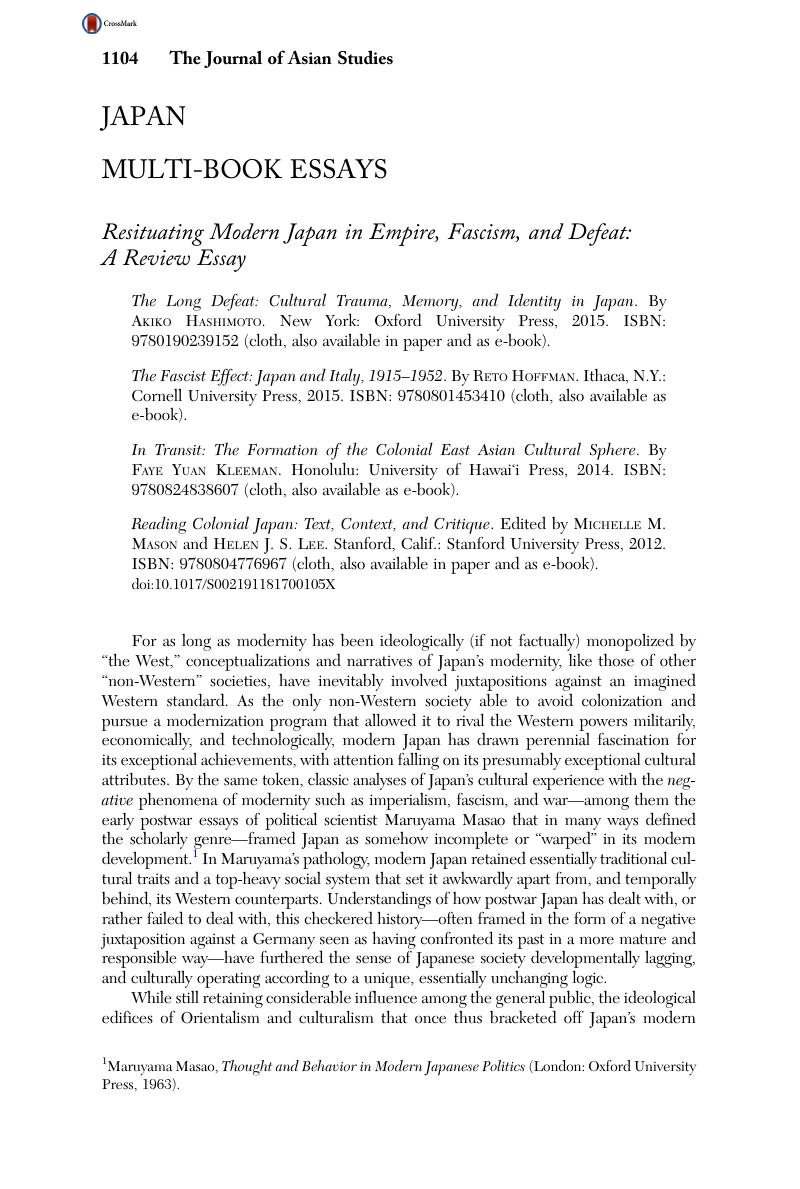No CrossRef data available.
Published online by Cambridge University Press: 11 December 2017

1 Masao, Maruyama, Thought and Behavior in Modern Japanese Politics (London: Oxford University Press, 1963)Google Scholar.
2 Young, Louise, Japan's Total Empire: Manchuria and the Culture of Wartime Imperialism (Berkeley: University of California Press, 1998)Google Scholar; Harootunian, Harry D., Overcome by Modernity: History, Culture, and Community in Interwar Japan (Princeton, N.J.: Princeton University Press, 2000)Google Scholar.
3 Schmid, Andre, “Colonialism and the ‘Korea Problem’ in the Historiography of Modern Japan: A Review Article,” Journal of Asian Studies 59, no. 4 (2000): 951–76CrossRefGoogle Scholar.
4 Harootunian, op. cit. note 2; Mimura, Janis, Planning for Empire: Reform Bureaucrats and the Japanese Wartime State (Ithaca, N.Y.: Cornell University Press, 2011)CrossRefGoogle Scholar; Tansman, Alan, ed., The Culture of Japanese Fascism (Durham, N.C.: Duke University Press, 2009)Google Scholar. See also Fletcher, William Miles III, The Search for a New Order: Intellectuals and Fascism in Prewar Japan (Chapel Hill: University of North Carolina Press, 1982)Google Scholar.
5 McCormack, Gavan, “Nineteen-Thirties Japan: Fascism?” Bulletin of Concerned Asia Scholars 14, no. 2 (1982): 20–33 Google Scholar.
6 Tetsuo, Furuya, “Nihon fashizumu ron” [The theory of Japanese fascism], in Iwanami kōza nihon rekishi [Iwanami course in Japanese history], vol. 20 (Tokyo: Iwanami shoten, 1976)Google Scholar; Yoshiaki Yoshimi, Kusa no ne no fashizumu: Nihon minshū no sensō taiken [Grassroots fascism: The war experience of the Japanese people] (Tokyo: Tokyo Daigaku shuppankai, 1987).